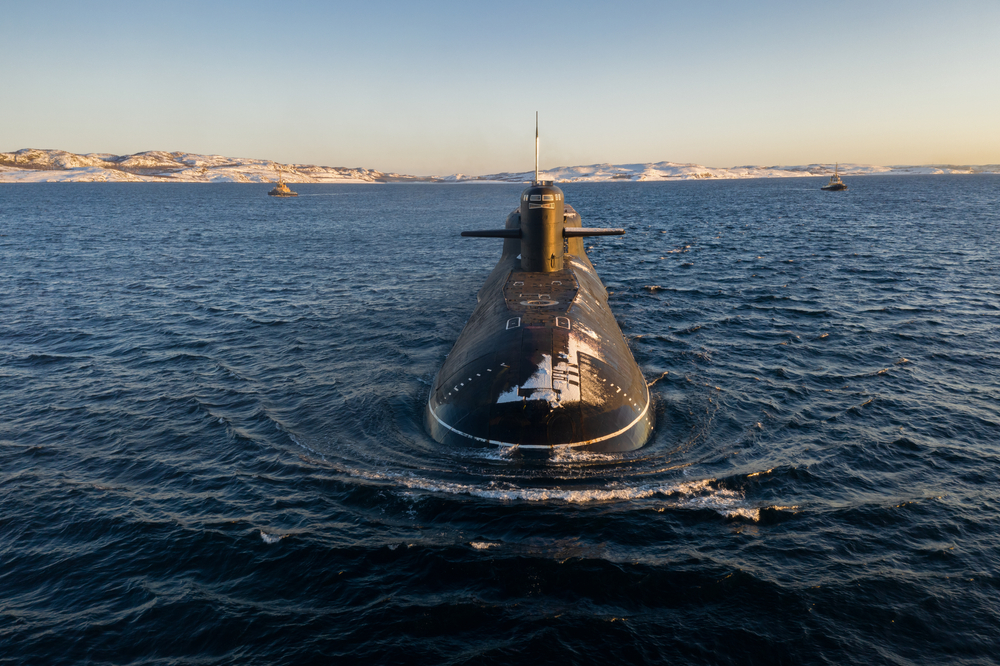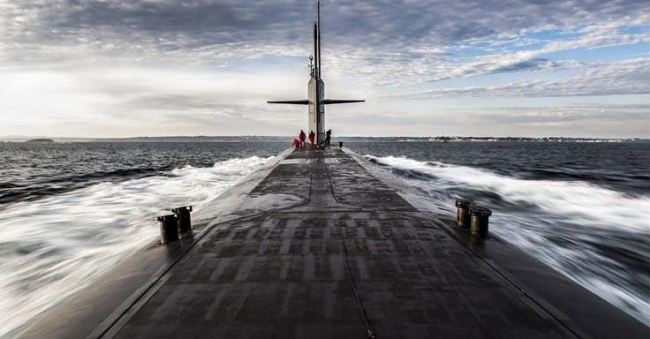Taking the Pulse: Can Europeans Build Their Independent Extended Nuclear Deterrent?
Confronted with a U.S. disengagement and the Russian threat, Europeans are reconsidering their stance on nuclear deterrence. Given the capabilities of the French and British arsenals, can Europe develop an independent nuclear deterrent?

[...]
Héloïse Fayet , Research Fellow and Head of the Deterrence & Proliferation Research Program at the Institut Français des Relations Internationales
Forget the fantasy of a Eurobomb or a travelling nuclear suitcase between EU capitals. The real question is how to better leverage the existing arsenals of France and the UK in a Europe where Washington’s commitment is no longer a given. What happens if NATO allies can’t trust that the United States will trade Boston for Berlin?
The answer is not to mimic the American model with tactical nukes scattered across the continent. If Paris and London were to extend deterrence, it would be because their national security is inextricably tied to Europe’s stability. Any adaptation must reflect this.
For France, that could mean clarifying its vital interests and going beyond presidential speeches that require explaining to be correctly understood by allies—but without sharing nuclear decisionmaking or stationing warheads abroad. Those are currently a no-go for Paris. Conventional forces, missile defense, and deep precision strikes must also be part of the equation. Instead of obsessing over warhead numbers, why not start by reinforcing French deployments on NATO’s Eastern flank?
Even though the UK considers it already participates in European security through its nuclear contributions to NATO, London must American-proof its long-term nuclear future in case of diminished cooperation with the United States.
The time for pragmatic nuclear dialogue and political commitments is now.
[...]
> Read the full commentary on Carnegie's website.

Available in:
Themes and regions
Share
Related centers and programs
Discover our other research centers and programsFind out more
Discover all our analysesBundeswehr: From Zeitenwende (historic turning point) to Epochenbruch (epochal shift)
The Zeitenwende (historic turning point) announced by Olaf Scholz on February 27, 2022, is shifting into high gear. Financially supported by the March 2025 reform of Germany’s “debt break” and backed by a broad political and societal consensus to strengthen and modernize the Bundeswehr, Germany's military capabilities are set to rapidly increase over the coming years. Expected to assume a central role in the defense of the European continent in the context of changing transatlantic relations, Berlin’s military-political position on the continent is being radically transformed.
Main Battle Tank: Obsolescence or Renaissance?
Since February 2022, Russian and Ukrainian forces combined have lost more than 5,000 battle tanks, a much higher volume than all the European armor combined. Spearhead of the Soviet doctrine from which the two belligerents came, tanks were deployed in large numbers from the first day and proved to be a prime target for UAVs that became more numerous and efficient over the months. The large number of UAV strike videos against tanks has also led a certain number of observers to conclude, once again, that armor is obsolete on a modern battlefield. This approach must, however, be nuanced by a deeper study of the losses and their origin, UAVs rarely being the sole origin of the loss itself, often caused by a combination of factors such as mines, artillery or other anti-tank weapons.
Mapping the MilTech War: Eight Lessons from Ukraine’s Battlefield
This report maps out the evolution of key technologies that have emerged or developed in the last 4 years of the war in Ukraine. Its goal is to derive the lessons the North Atlantic Treaty Organization (NATO) could learn to strengthen its defensive capabilities and prepare for modern war, which is large-scale and conventional in nature.
"Iron Swords" A Military Analysis of Israel's War in Gaza
On October 7, 2023, Hamas' attack, dubbed “Al-Aqsa Flood,” caused a major shock and led Israel to launch the longest war in its history. Operation “Iron Swords” was notable for its unprecedented intensity, both in terms of the massive ground forces deployed and the firepower used.













